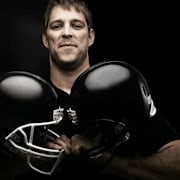Rethinking Pharmaceutical Dependency in Modern Medicine: A Conversation with Dr. Joe Dituri

In a recent conversation with Dr. Joe Dituri, a hyperbaric expert and biomedical researcher, we tackled some hard truths about the heavy reliance on pharmaceuticals in modern healthcare. The ongoing search for the “right combination” of medications to treat conditions like anxiety, depression, and other chronic issues has become standard practice in medicine. But in this quest for the right mix, we often overlook a critical question - what exactly are we aiming to achieve, and at what cost?
We’re in a landscape where “normal” is often defined by pharmaceutical companies and healthcare providers who use medications to address symptoms rather than root causes. This approach can spiral quickly. One drug might work for anxiety, but then you find out it comes with a list of side effects - some so severe that they require additional medication to counteract. The result? A complex cocktail of drugs, where each new medication risks adding more side effects, sometimes severe. And we’ve all heard the disclaimers listing side effects like “suicidal thoughts” or “severe mood swings.” So, what’s the real cost of normalizing pharmaceutical dependency?
During our discussion, we touched on the tragic story of Demaryius Thomas, an elite athlete who suffered seizures at just 33 years old. His sudden passing raised questions about the kinds of treatments he might have been receiving. What conditions was he treated for? And could a pharmaceutical cocktail have played a role in his health complications? Athletes, kids, and everyday people are often prescribed multiple medications, but how well do we understand the cumulative effect of these drugs on the body over time?
Dr. Dituri, who’s deeply familiar with alternative approaches like hyperbaric therapy, has seen firsthand the limitations of a medication-centric approach. Rather than seeking endless drug combinations, he advocates for treatments that address underlying conditions more directly and holistically. For conditions like traumatic brain injuries, for instance, hyperbaric oxygen therapy (HBOT) is showing promising results, enhancing brain function without the harsh side effects of conventional medication.
The takeaway here isn’t that pharmaceuticals are inherently bad, many are lifesaving and essential. But Dr. Dituri and I both agree that over-reliance on drugs, especially in combinations with limited testing on long-term effects, is a flawed strategy. Instead, we need a medical approach that prioritizes understanding the root causes of health issues and evaluates alternative treatments that improve patients' quality of life without risking additional harm.
Our conversation also underscored the critical need for patient awareness. How many people understand the potential risks of taking multiple medications, especially when prescribed over a long period? And how often do we question whether a prescribed “normal” is actually optimal? At the end of the day, we have a duty to ensure that treatments are safe, effective, and genuinely in the patient’s best interest.
In summary, there’s no one-size-fits-all solution in medicine. But perhaps by rethinking our approach—by reducing our dependency on pharmaceuticals and exploring less invasive therapies—we can create a healthcare system that truly prioritizes long-term wellness over temporary fixes.
